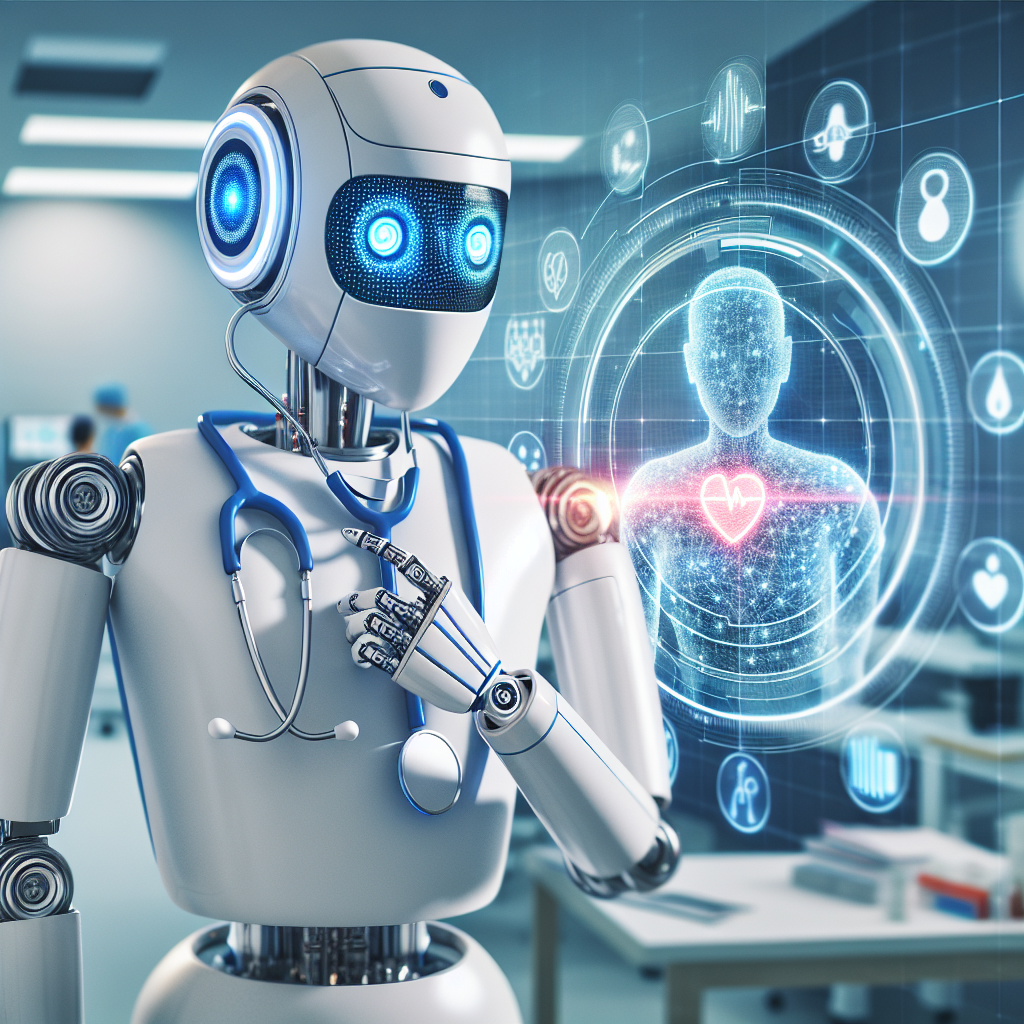Advancements in artificial intelligence (AI) technology have revolutionized various industries, and healthcare is no exception. AI has the potential to transform patient care by improving diagnosis, treatment, and overall healthcare delivery. In this article, we will explore the role of AI in healthcare and how it is reshaping the way healthcare is provided to patients.
AI in Healthcare: An Overview
Artificial intelligence refers to the simulation of human intelligence processes by machines, including learning, reasoning, and self-correction. In healthcare, AI is used to analyze complex medical data, detect patterns, and make predictions to assist healthcare professionals in making more informed decisions.
One of the key applications of AI in healthcare is in medical imaging. AI-powered algorithms can analyze medical images such as X-rays, MRIs, and CT scans to detect abnormalities and assist radiologists in diagnosing diseases such as cancer, heart disease, and neurological disorders. AI can help improve the accuracy and speed of diagnosis, leading to better patient outcomes.
In addition to medical imaging, AI is also being used in drug discovery and development. Pharmaceutical companies are leveraging AI to analyze vast amounts of data to identify potential drug candidates, predict their efficacy, and optimize treatment regimens. This has the potential to accelerate the drug development process and bring new treatments to market more quickly.
Another area where AI is making a significant impact is in personalized medicine. By analyzing a patient’s genetic information, medical history, and lifestyle factors, AI can help healthcare providers tailor treatment plans to individual patients, maximizing the likelihood of a successful outcome. This personalized approach to healthcare can lead to better patient outcomes and reduced healthcare costs.
AI is also being used to improve healthcare delivery and patient engagement. Chatbots powered by AI can provide patients with information about their conditions, schedule appointments, and answer common questions, freeing up healthcare professionals to focus on more complex tasks. AI can also be used to analyze patient data to identify individuals at risk of developing certain conditions and intervene proactively to prevent disease progression.
Overall, AI has the potential to revolutionize healthcare by improving diagnosis, treatment, and healthcare delivery, ultimately leading to better patient outcomes and a more efficient healthcare system.
FAQs
Q: What are some of the challenges of implementing AI in healthcare?
A: One of the main challenges of implementing AI in healthcare is data privacy and security. Healthcare data is highly sensitive and must be protected to ensure patient confidentiality. Additionally, there may be resistance from healthcare professionals who are skeptical of AI technology or concerned about job displacement.
Q: How can AI improve patient outcomes?
A: AI can improve patient outcomes by enabling more accurate and timely diagnoses, optimizing treatment plans, and identifying at-risk patients before they develop serious health conditions. By leveraging AI technology, healthcare providers can deliver more personalized and effective care to their patients.
Q: Will AI replace healthcare professionals?
A: While AI has the potential to automate certain tasks traditionally performed by healthcare professionals, such as analyzing medical images or diagnosing diseases, it is unlikely to replace human healthcare providers entirely. AI is best used as a tool to augment the capabilities of healthcare professionals and improve the quality of care provided to patients.
Q: How can patients benefit from AI in healthcare?
A: Patients can benefit from AI in healthcare in a variety of ways, including faster and more accurate diagnoses, personalized treatment plans, and improved access to healthcare services. AI can help patients take a more active role in managing their health and make informed decisions about their care.
In conclusion, AI has the potential to transform patient care by improving diagnosis, treatment, and overall healthcare delivery. By leveraging AI technology, healthcare providers can deliver more personalized and effective care to their patients, leading to better patient outcomes and a more efficient healthcare system. As AI continues to advance, the possibilities for its application in healthcare are endless, and the future of healthcare looks brighter than ever.

